If your social media feed has increasingly been showing you gardening and rural living-related posts, you’re not alone!
In terms of aesthetics, the Homestead Trend seems to portray a cozy effect that retains a connection with the outdoors and nature.
What is the Homesteading?
The homestead trend is gaining popularity as more people seek to live a more sustainable and self-sufficient lifestyle. Urban homesteading is also on the rise, as people in cities seek ways to live more sustainably. There is a growing interest in permaculture, a design system that creates self-sustaining ecosystems, and a shift towards alternative protein sources such as insects and plant-based proteins.
Why Are People Getting Into Homesteading?
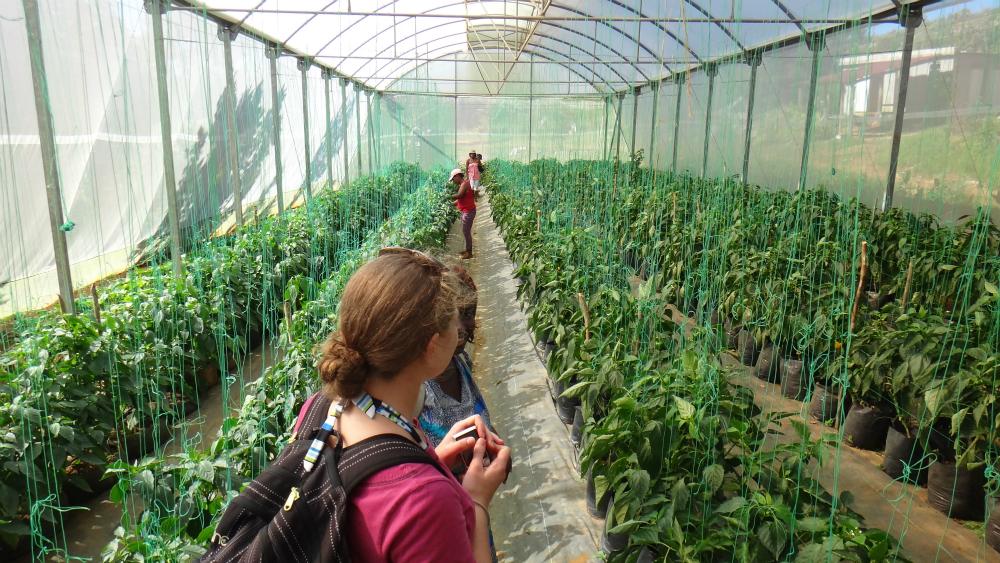
- Sustainability: Homesteading promotes a self-sufficient lifestyle that reduces dependence on commercial products and services, minimizing environmental impact.
- Healthier Living: Growing your own food and raising animals allows for a healthier diet, free from pesticides and additives found in store-bought products.
- Cost Savings: Producing your own food and energy can lead to significant cost savings in the long run.
- Connection to Nature: Homesteading offers a closer connection to nature and the seasons, providing a sense of fulfillment and well-being.
- Self-Reliance: There’s a growing desire for independence and self-reliance, and homesteading provides the skills and knowledge to achieve that.
- Escape from Urban Life: Many people are seeking a simpler, slower-paced lifestyle away from the hustle and bustle of urban areas.
- Preparedness: Homesteading skills such as preserving food, gardening, and animal husbandry can be valuable in times of crisis or economic downturns.
- Community Building: Homesteading often involves building a community with like-minded individuals, and sharing knowledge, resources, and support.
What Skills Are Necessary for Homesteading?
Now before you start digging holes into your backyard, remember that starting a homestead requires a diverse set of skills to ensure self-sufficiency and sustainability.
Here are some essential skills you might want to consider developing:
- Gardening and Crop Cultivation: Understanding soil health, crop rotation, pest management, and seasonal planting is crucial for growing your own food.
- Animal Husbandry: If you plan to raise livestock, knowledge about animal care, breeding, and disease prevention is important.
- Basic Carpentry and Construction: Skills in building and repairing structures, such as fencing, animal shelters, and raised garden beds, are useful.
- Water Management: Knowing how to collect, store, and conserve water, including setting up rainwater harvesting systems and irrigation techniques, is essential.
- Food Preservation: Learning methods like canning, freezing, dehydrating, and fermenting can help extend the shelf life of your harvest.
- Basic Mechanics: Understanding basic mechanics and how to repair tools and equipment, such as tractors or gardening tools, can save money and time.
- Renewable Energy Systems: Knowledge of setting up and maintaining renewable energy sources like solar panels or wind turbines can help reduce dependence on the grid.
- Foraging and Wildcrafting: Identifying and safely harvesting wild edible plants and herbs can supplement your diet and provide natural remedies.
- Financial Management: Budgeting, expense tracking, and planning for long-term sustainability are critical for successful homesteading.
- Community Building: Networking with other homesteaders, sharing resources, and participating in local markets can provide support and opportunities for collaboration.
These skills can be developed over time through hands-on experience, workshops, online courses, and by connecting with experienced homesteaders in your community or online forums.
Learn the Skills You Need
If you love traveling, a great way to gain homestead-related experience is to get involved in projects abroad that can teach you exactly the skills you need to lead that homestead life. So what are you waiting for? Get started on your homesteading life now!
International Volunteer HQ (IVHQ) offers a variety of programs that provide hands-on experience in sustainable living practices. Volunteers not only contribute to global communities but also gain invaluable knowledge and skills for leading a self-sufficient homestead life.
Here’s how four IVHQ programs stand out in preparing individuals for homesteading:
- Skills in Sustainable Farming: Volunteers learn traditional and modern farming techniques, crucial for gardening and crop cultivation.
- Animal Care Experience: Working with livestock teaches volunteers about animal husbandry.
- Cultural and Agricultural Immersion: Living with a local family offers insights into Nepali agricultural life and community building.
- Other sustainable agriculture programs are available in:
- Volunteers engage in Gardening, Crop Cultivation, and Animal Husbandry on coffee and nut farms, learning about soil, crop rotation, and animal care.
- Basic Carpentry, Construction, and Mechanics are covered through tasks like clearing land and maintaining tools, essential for farm upkeep.
- The experience emphasizes Community Building and Financial Management, fostering teamwork and understanding of sustainable farm economics.
- Other eco-agriculture programs are available in:
- Traditional Andean Farming: Volunteers gain firsthand experience in farming and agricultural work, including animal husbandry and crop rotation.
- Building and Construction Tasks: Helps develop basic carpentry and construction skills through community projects.
- Cultural Exchange: Immersing in Quechua-speaking communities enhances understanding of foraging, wildcrafting, and traditional practices.
Trending Guidebooks
Volunteering Abroad AFTER the Coronavirus Outbreak
Read 26,470 times2025 Best Internships Abroad: Medical Care, Marine Biology & More
Read 92,743 timesVolunteer in Australia: Animals, Conservation, Ranching and More
Read 50,851 times2025 Best Volunteer Abroad Programs, Organizations, and Projects
Read 3,665,654 times
Volunteers with GoEco get the chance to immerse themselves in local cultures while gaining practical knowledge and skills that are directly applicable to running a successful homestead.
These GoEco programs not only offer a chance to contribute positively to global communities but also equip volunteers with the diverse skills needed for a self-sufficient, sustainable homestead life.
- Agricultural Skills: Engage in the entire coffee farming process, from planting to processing, learning about organic farming practices that improve soil health and pest management.
- Living Like a Local: Experience Costa Rican culture up close by staying with a host family, enhancing language skills, and understanding the local approach to sustainability and financial management.
- Exploration and Community Engagement: Weekends offer opportunities to explore Costa Rica’s natural beauty, fostering a deeper connection with the community and the environment.
- Building and Repairing: Develop basic carpentry and construction skills through projects like renovating schools and public libraries, essential for creating and maintaining homestead structures.
- Cultural Exchange: Live in a local village, experiencing firsthand the community’s lifestyle and traditional building methods, contributing to a mutual exchange of knowledge and skills.
- Community Impact: See the tangible impact of your work on the community’s development, understanding the importance of community building and collaboration in a homesteading context.
Maximo Nivel’s diverse programs in Latin America are tailored to immerse volunteers and interns in local communities, offering hands-on experience.
By working closely with local professionals and communities, volunteers and interns not only contribute to meaningful projects but also gain invaluable insights into traditional and sustainable ways of living.
- Volunteers assist in organic and sustainable farming practices, including coffee and macadamia nut production and permaculture farms, across Costa Rica, Guatemala, and Peru.
- Activities range from planting, harvesting, processing, and packaging, to community outreach and reforestation efforts, embodying essential skills for gardening, crop cultivation, and community building.
- The program offers deep immersion into local farming communities, enhancing volunteers’ understanding of eco-friendly agriculture and its impact on environmental sustainability.
- Focused on building infrastructure like homes, schools, and community centers, volunteers learn basic carpentry, construction, and mechanics, directly applicable to homestead building and repair projects.
- Work is physically demanding and includes excavation, painting, mixing cement, and more, providing hands-on experience in water management and construction techniques.
- Volunteers see tangible results of their efforts, contributing to community development while acquiring skills essential for homestead life.
- Volunteers live and work with indigenous families, engaging in agricultural work, animal care, traditional weaving, and construction projects, offering a comprehensive experience in homesteading skills.
- This program emphasizes cultural immersion, allowing volunteers to learn about sustainable living practices, foraging, and wildcrafting from communities with deep connections to their natural environment.
- Tasks vary based on seasonal needs, offering volunteers a holistic understanding of living in harmony with nature, crucial for successful homesteading.
- Internships with small businesses and entrepreneurs in Costa Rica, Guatemala, and Peru focus on marketing, sales, client service, and accounting, providing insights into financial management and sustainable business practices.
- Interns assist in developing marketing strategies and distribution channels, gaining experience that can be helpful to successfully manage and grow a homestead-based business.
- These internships offer a unique perspective on the challenges and opportunities of operating a micro-business in a developing economy, equipping participants with essential skills for homestead financial management and community networking.
Projects Abroad offers programs that not only immerse you in new cultures but also equip you with these essential homesteading skills through practical, hands-on experiences. Each of these Projects Abroad programs provides a unique opportunity to develop the skills necessary for homesteading, and volunteers will leave with a richer understanding of what it takes to run a sustainable, self-sufficient homestead.
Here’s how each program aligns with homesteading principles:
- Construction Skills: Volunteers build critical infrastructure like classrooms and homes, learning construction, carpentry, and masonry skills.
- Environmental Sustainability: Making eco-friendly bricks introduces sustainable building practices.
- Cultural Immersion and Community Building: Living with a host family in the Akuapem Hills offers a deep cultural exchange and the chance to contribute tangibly to community welfare.
- Building projects are also available in:
- Economic Empowerment: Assisting entrepreneurs with business training and interest-free loans teaches financial management and economic sustainability.
- Skill Development: Volunteers gain practical experience in micro-finance, enhancing their professional skills while supporting local businesses.
- Cultural Exchange: Living and working in Phnom Penh provides a rich cultural immersion, offering insights into the local economy and lifestyle.
- Micro-finance internships are also available in Tanzania and as part of a Gap Year program in East Africa.
- Agriculture and Gardening: Helping with farming and gardening projects aligns with understanding soil health, crop rotation, and sustainable food production.
- Education and Maintenance: Teaching at a care center and assisting with village maintenance incorporate community building and basic mechanics.
- Cultural Immersion: Living in a traditional Fijian village offers a unique insight into Fijian life, culture, and the importance of community collaboration.
African Impact offers a variety of volunteer programs across the African continent. These programs provide hands-on experience and not only contribute to personal growth and professional development but also equip volunteers with practical skills and knowledge applicable to managing a homestead.
Here’s how three specific programs from African Impact help exemplify these essential homesteading skills.
- Sustainable Building and Recycling: Volunteers learn to construct with EcoBricks, turning plastic waste into useful building materials, echoing skills in recycling and basic construction.
- Environmental Education: Hosting workshops teach waste management and environmental conservation, vital for sustainable homesteading.
- Community Engagement: Working with locals on upcycling initiatives provides insights into community building and financial management through innovative recycling projects.
- Conservation Work: Removing invasive species and planting indigenous trees enhance understanding of soil health and ecosystem restoration.
- School Engagement: Environmental education sessions in schools spread awareness about sustainability, mirroring the importance of community education in homesteading.
- Sustainable Practices: Assisting in developing rainwater harvesting systems and vegetable gardens teaches water management and crop cultivation, essential for homesteading.
- NGO Management and Development: Gaining experience in the operations of a small NGO offers insights into financial management and project planning.
- Community Projects: Time spent on community engagement enhances skills in community building and sustainable development.
- Impact Measurement: Learning to evaluate the effectiveness of conservation and community projects provides a deeper understanding of sustainable practices and their outcomes.
Involvement Volunteers International (IVI) offers programs that immerse participants in diverse cultures and communities. These programs are perfect for those looking to gain practical experience in managing a homestead, understand the importance of sustainable practices, and contribute positively to global communities.
Here’s how five IVI programs exemplify homestead life skills:
- Volunteers learn sustainable farming methods and work on diverse farms including coffee, tea, and macadamia nut farms.
- Tasks include growing, watering, harvesting crops, and educating the community on environmental care.
- Offers a real-life setting to practice gardening, crop cultivation, and community building.
- Focuses on traditional and sustainable farming techniques in coffee and macadamia nut production.
- Volunteers assist in every production step, from crop to product, including planting, harvesting, and processing.
- Encourages learning about sustainable land management and environmental stewardship.
- Engages volunteers in construction projects at schools and community buildings, teaching basic carpentry and construction skills.
- Tasks include bricklaying, carpentry, painting, and landscaping/gardening.
- Supports community development through hands-on construction work, enhancing communal facilities.
- Explore more Construction programs by IVI here!
- Cares for alpacas and llamas, providing insights into animal husbandry and the importance of these animals in Peruvian culture.
- Involves in farm maintenance, animal care, and the production of Peruvian textiles from alpaca and llama wool.
- Teaches volunteers about the textile industry, animal care, and small-scale farming sustainability.
- Centers around a rural school, offering opportunities to teach, support nutrition programs, and engage in construction and renovation projects.
- Volunteers can contribute to community gardening, essential children’s nutrition, and maternal health education.
- Encourages community building, educational support, and basic construction work to improve local infrastructure.
Volunteering Solutions (VolSol) offers a diverse array of programs that not only contribute to personal growth and learning but also provide practical, hands-on experience in different aspects of sustainable living and community development. These VolSOl programs are designed not only to aid communities worldwide but also to equip volunteers with the knowledge, skills, and experiences that lay a solid foundation for leading a successful and sustainable homestead life.
Here’s how four VolSol programs exemplify the vital skills for leading a homestead life:
- Volunteers work in charity shops and tourist offices, gaining insights into Financial Management and Community Building by engaging with local communities and supporting various development programs.
- Participating in community clean-ups and assisting at local events offer hands-on experience in Environmental Conservation and foster a sense of Community Collaboration, essential for a successful homestead.
- The opportunity to live with a local host family enhances Cultural Exchange, allowing volunteers to immerse themselves in local traditions and practices, beneficial for holistic homesteading.
- Explore a similar program based in Barcelona!
- Volunteers improve lives by building essential infrastructure such as roads and bridges, honing their Basic Carpentry and Construction skills crucial for homestead building projects.
- Addressing water and sanitation issues directly relates to Water Management, teaching volunteers effective methods to collect, store, and conserve water.
- The construction of pathways and bridges to aid local inhabitants and tourists alike showcases the importance of Community Engagement in creating sustainable and accessible environments.
- This program emphasizes the significance of Food Preservation and Waste Management, as volunteers work to collect, organize, and distribute food excess, reducing waste and supporting community food security.
- Engaging with local providers to collect food introduces volunteers to Community Networking, vital for resource sharing and collaboration in homesteading.
- The project aims to improve food security for vulnerable populations, aligning with Sustainable Living Practices that are central to a homesteader’s ethos.
- Volunteers participate in construction and beautification projects, developing Basic Carpentry, Building, and Landscaping skills necessary for homestead maintenance and development.
- Community development initiatives, including business training and environmental conservation, provide insights into Sustainable Economic Practices and Environmental Stewardship.
- Working closely with local villagers and participating in various awareness drives encourage Community Building and Cultural Understanding, fostering a collaborative spirit essential for homesteading.
- VolSol has construction programs worldwide, including
Global Vision International (GVI) offers a diverse array of programs that not only focus on practical hands-on skills but also emphasize community engagement, environmental stewardship, and cultural immersion. These GVI programs exemplify the broad spectrum of skills and experiences essential for leading a self-sufficient homestead life.
Here’s how four specific GVI programs align with the key competencies needed for homesteading:
- Volunteers contribute to Water Management efforts by setting up rainwater harvesting systems, crucial for any homestead.
- Engaging in waste management and recycling projects teaches valuable sustainability practices, essential for eco-friendly living.
- Participants work closely with the community, fostering community-building skills through shared goals of improving water security and hygiene.
- This program focuses on Financial Management by helping communities develop sustainable business practices through handicrafts and eco-friendly fashion.
- Volunteers can apply and learn Basic Carpentry and Construction skills in occasional construction projects, enhancing their ability to build and repair structures.
- The program offers a unique opportunity for Community Building, as it empowers women and the wider community through job creation and skills training.
- Participants assist with Water Management projects, addressing crucial needs like water access, sanitation, and hygiene (WASH) in local communities.
- The program includes Community Workshops on sustainable agriculture, directly aligning with Gardening and Crop Cultivation skills.
- By working on diverse projects, volunteers gain Community Empowerment experience, crucial for anyone looking to lead a successful homestead life.
- This program directly teaches Basic Carpentry and Construction skills by involving volunteers in building and renovating educational facilities.
- Working alongside local workers provides practical Basic Mechanics knowledge, essential for maintaining and repairing homestead tools and structures.
- Volunteers engage in Community Development efforts, contributing to the sustainable growth of local communities through improved educational infrastructure.
Crafting a Life of Sustainability, Self-Reliance, and Simplicity
The growing interest in homesteading is more than just a trend; it’s a powerful choice that reflects a deeper desire to live in harmony with nature, be more self-sufficient, and make a positive impact on the world. This lifestyle isn’t just for those who dream of rural living; it’s for anyone who wants to adopt a more sustainable way of life, whether in the city or the countryside.
By learning to grow our own food, take care of animals, preserve food, and build eco-friendly homes, we’re not just gaining valuable skills—we’re also creating a more meaningful and rewarding life for ourselves. As homesteading continues to evolve, its core values of resilience, sustainability, and community are more important than ever, guiding us toward a life that’s closer to nature, good for our communities, and great for the planet.
-5649ad90f4069.jpg)

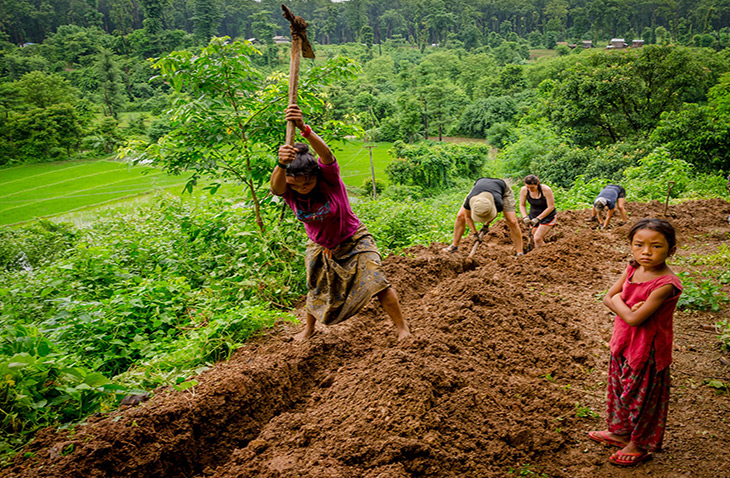
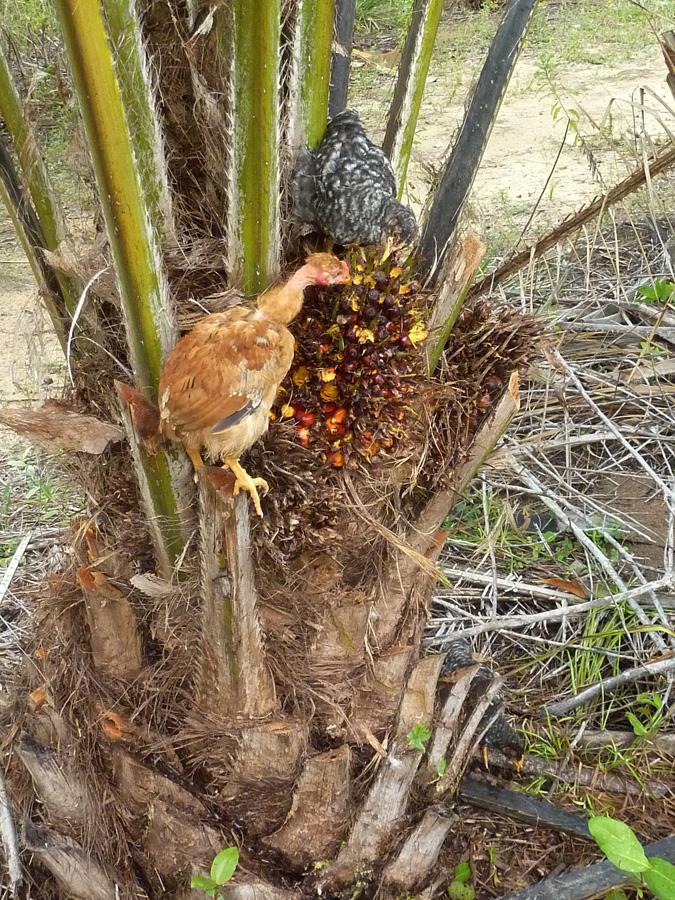












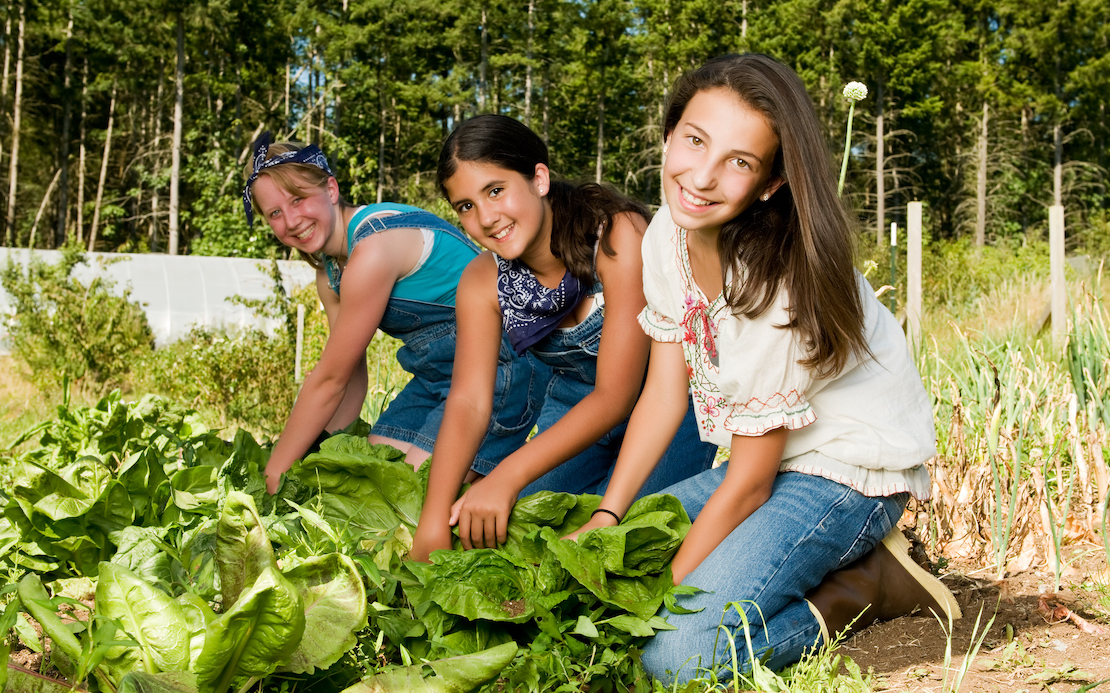
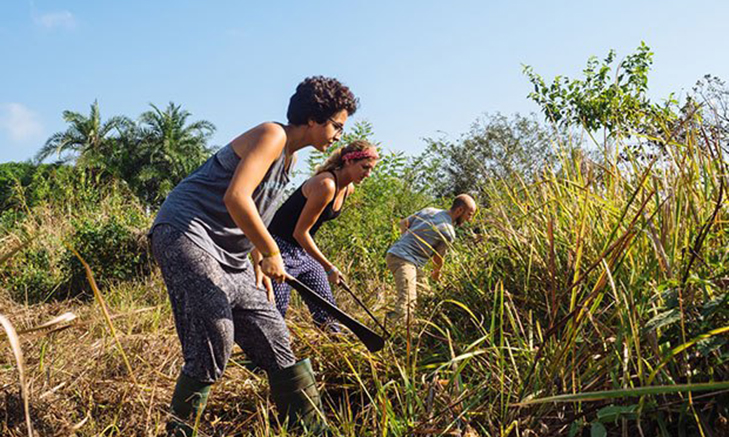

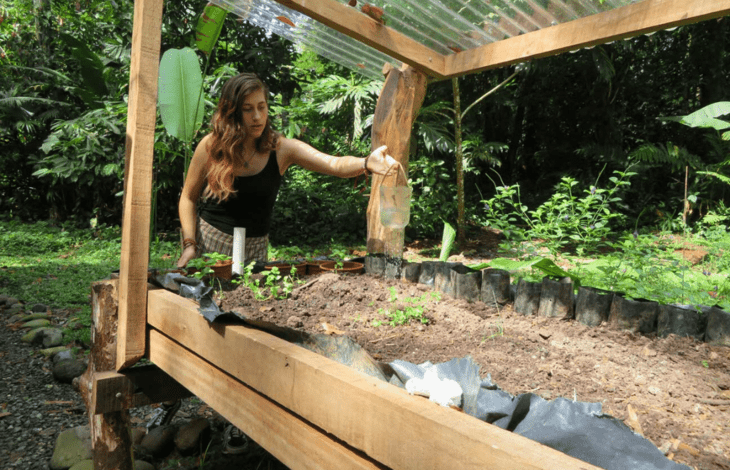

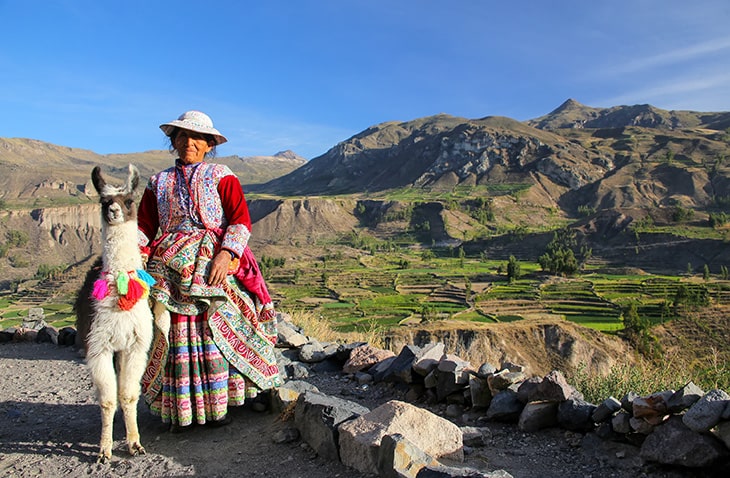

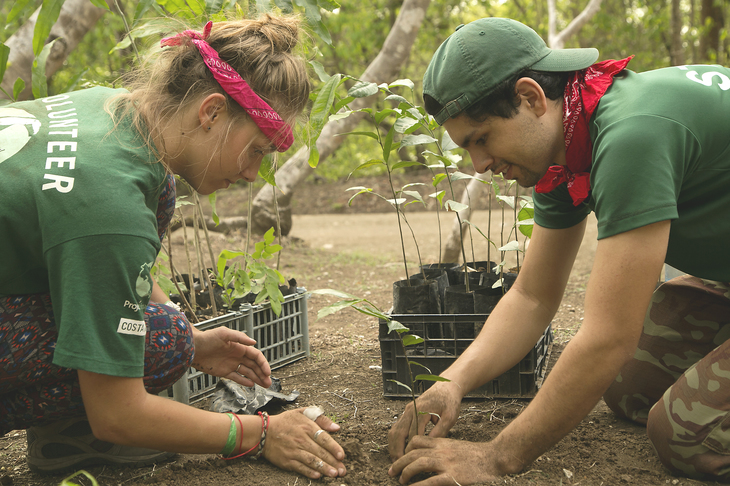

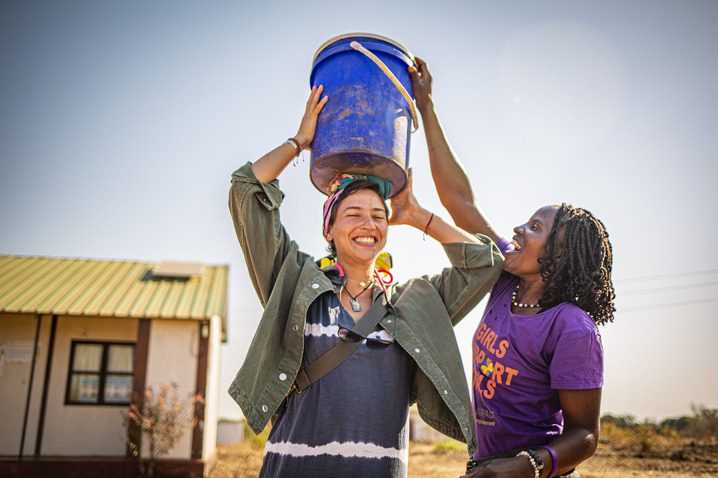
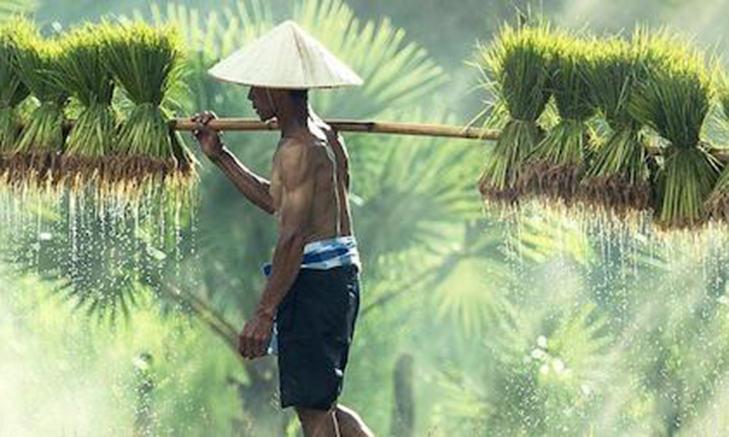
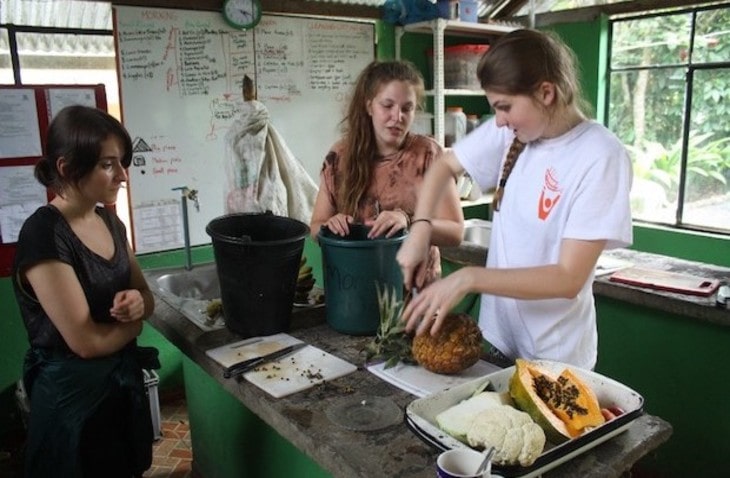
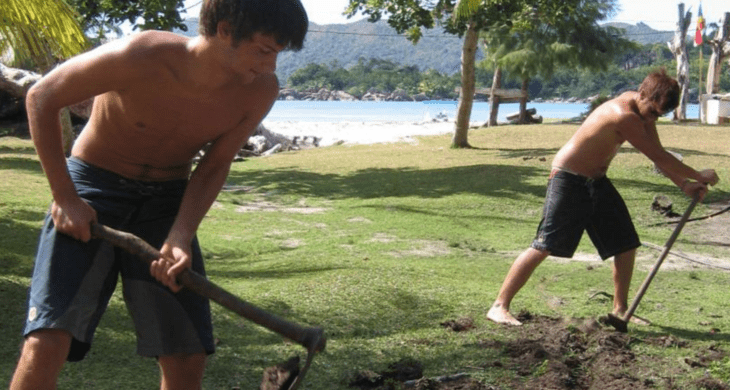
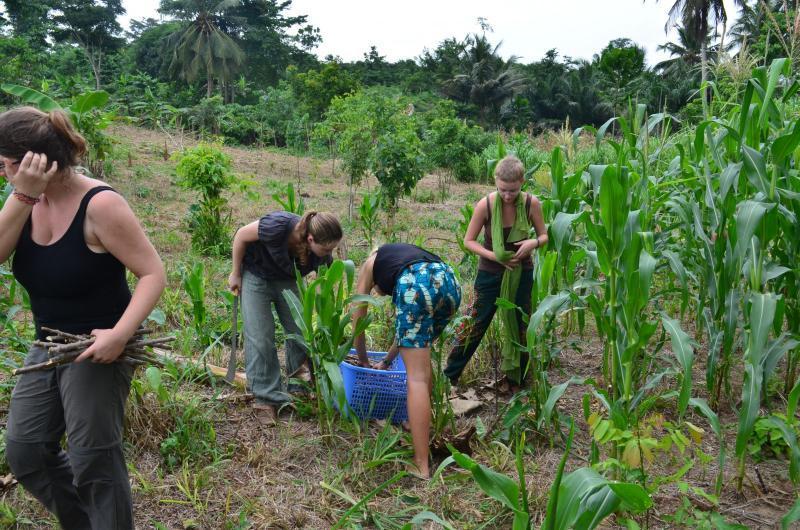






Munira Maricar · Travel Writer
With an international living background spanning Singapore, Qatar, Japan, and Mexico, Munira enjoys sharing insights on immersive travel while emphasizing the vital role of cultural respect and ethical engagement. Her extensive experience offers a unique perspective that inspires others to explore the world through service, ensuring that every journey respects and contributes positively to local traditions and communities.